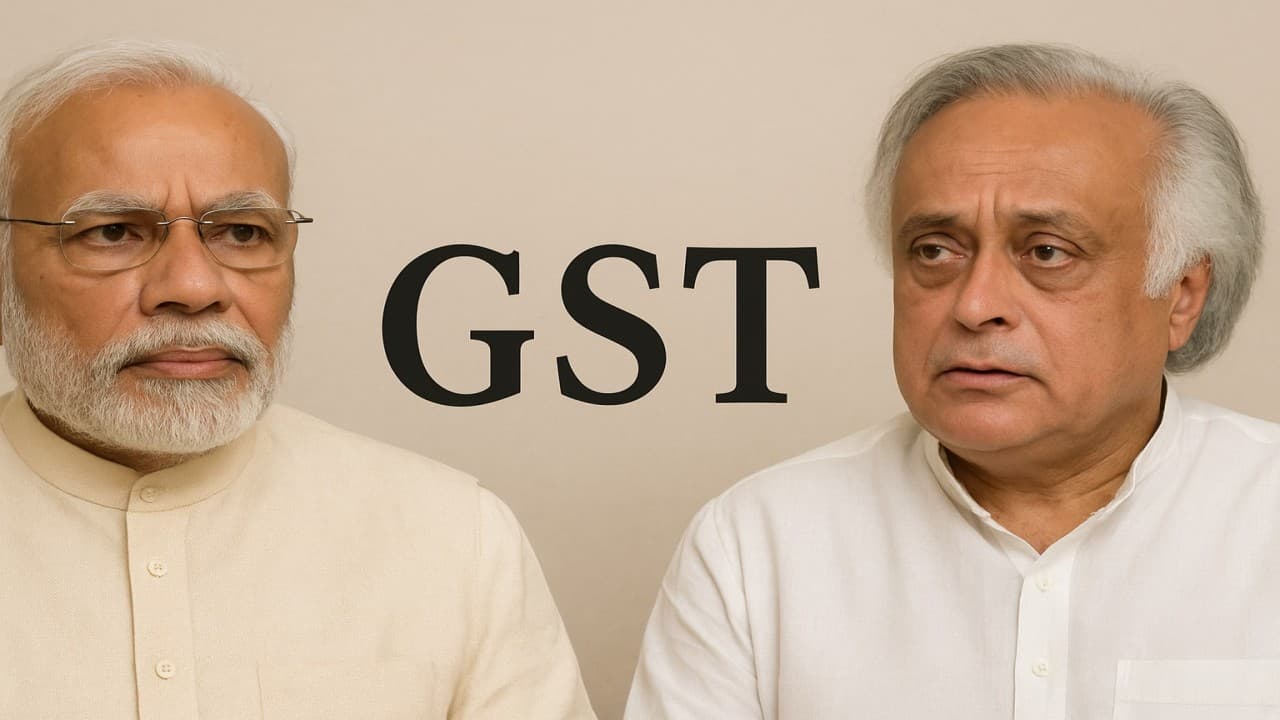Congress demanded an official discussion paper after PM Modi announced GST reforms. Jairam Ramesh said GST must become simple, not suppress growth. He sought lower rates, relief for MSMEs and extended aid for states before reforms are introduced.
After Prime Minister Narendra Modi announced major reforms to the Goods and Services Tax (GST), the Congress party has demanded that the government release an official discussion paper. The party said this is needed for an informed and wide debate. Congress General Secretary Jairam Ramesh said GST should truly become a ‘Good and Simple Tax’, not what he called a ‘Growth Suppressing Tax’. He urged the government to share details soon so that all sides can discuss the plan properly.
PM Modi’s ‘double Diwali gift’ promise
On Independence Day, PM Modi said the government is preparing next-generation GST reforms. He called them a ‘double Diwali gift’ for people and small businesses. PM Modi said the changes would simplify GST and reduce taxes on essential goods. The Prime Minister explained that a high-powered committee has already started consultations with states. The new rules, expected to be introduced around Diwali, aim to give relief to consumers, small industries, and micro, small and medium enterprises (MSMEs).
Jairam Ramesh criticises past GST structure
Reacting to PM Modi’s speech, Jairam Ramesh said the Prime Minister has ‘finally woken up’ to the fact that India needs a transformation in GST to push economic growth. He argued that the current structure has become complicated, with too many rates and exemptions, which has led to evasion and confusion. Ramesh said rates must be reduced drastically, and the structure simplified. He stressed that any changes must not harm state revenues. He also asked the government to extend the GST compensation cess beyond March 31, 2026, to support states. In the statement posted on X, Ramesh wrote, “For well over a year and a half at least, the Indian National Congress has been calling for a radically transformed GST 2.0. This was a key pledge in its manifesto for the 2024 Lok Sabha elections. Yesterday, the Prime Minister seems to have finally woken up to the fact that economic growth will simply not accelerate unless this transformation takes place and increases private consumption and private investment.”
“Over the last seven years, the spirit of GST has been vitiated by an increased number of rates and the granting of multiple exemptions. The structure also seems to have facilitated evasion. There must be a drastic reduction in the number of rates. Simplification of the rate structure is essential but must be done in a manner that minimizes revenue uncertainty to states and also eliminates the classification disputes that have become so common. The GST compensation cess expires on March 31, 2026. This must be extended to offset any revenue uncertainty from the rationalization of the rate structure,” he added.
MSMEs and sectors need relief
The Congress leader said MSMEs, which provide large-scale employment, are struggling under the present GST system. He demanded that thresholds for interstate supplies be raised to help these businesses. He also highlighted problems in sectors such as textiles, tourism, handicrafts, exports and agriculture. According to him, these areas need targeted solutions under GST 2.0. The statement on X read:
The widespread concerns of MSMEs – the major employment generators in the economy – must be addressed meaningfully. Apart from major procedural changes, this will involve further increasing the thresholds that must apply to interstate supplies as well. Sectoral issues that have surfaced — for instance in textiles, tourism, exporters, handicrafts and agricultural inputs —must be tackled. In addition, states should be incentivized to move towards the introduction of state-level GST to cover electricity, alcohol, petroleum, and real estate as well.
Ramesh suggested that states should be encouraged to bring more sectors under GST, including electricity, alcohol, petroleum and real estate. He said this would make the tax system more uniform and reduce loopholes. The Congress party insisted that the government must first share a clear paper on its reform plans. Ramesh said only then can Parliament and the public have a meaningful debate on GST 2.0.
